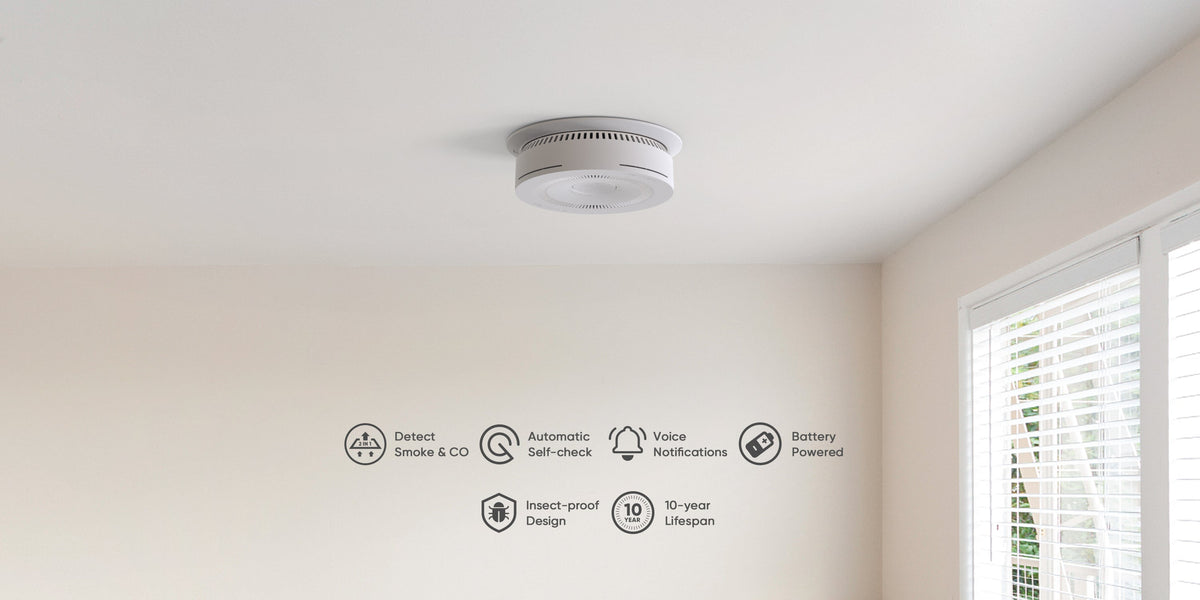
What Is the Best Carbon Monoxide Detector?
|
|
Time to read 2 min
|
|
Time to read 2 min
Carbon monoxide detectors are silent heroes in our homes, protecting us from the deadly threat of this odorless, colorless gas. But in a market flooded with options, how do you determine what’s the best carbon monoxide detector? Let’s get through the essentials, helping you make an informed choice to keep your family safe.
Before diving into detectors, let's grasp the danger they guard us against. Carbon monoxide is a byproduct of incomplete fuel combustion, emitted by gas appliances, wood stoves, or car engines. It's the "silent killer" because it's invisible and odorless, causing symptoms like headaches, nausea, and confusion, often mistaken for the flu, until it's too late.
There are two primary types of carbon monoxide detectors: plug-in and battery-operated. Each has its merits and considerations. What’s the best carbon monoxide detector?
Battery-operated detectors - they’re standalone devices that are powered by batteries, making them easy to install anywhere, even in areas without electrical outlets.
When searching for the best carbon monoxide detector, several critical features should be on your radar:
Maintenance and lifespan - regular maintenance is vital to keep your detector effective. Choose a unit with positive reviews and clear instructions to ensure ongoing safety for you and your family.
So, what's the best carbon monoxide detector for your home? Ultimately, it hinges on your unique needs and preferences. Weigh factors like sensing technology, display and alerts, power source, interconnectivity, and maintenance when making your choice.
Remember, a carbon monoxide detector is an investment in your family's safety and peace of mind. Prioritize quality and reliability over price, as a dependable detector can be the difference between detecting a life-threatening situation and facing a silent threat. By understanding the different detector types and key features, you can make a well-informed choice providing the protection you need.